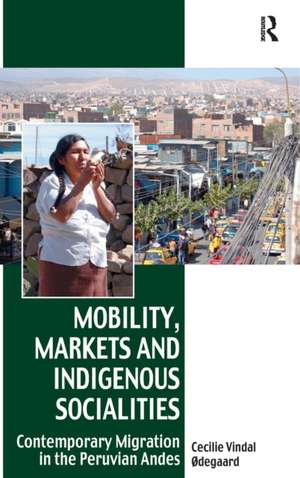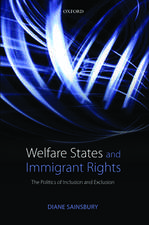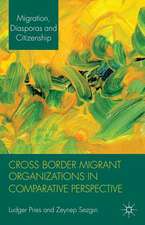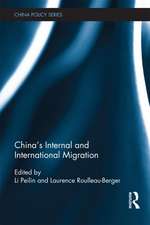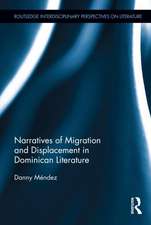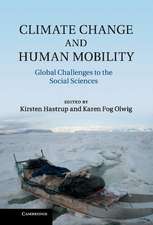Mobility, Markets and Indigenous Socialities: Contemporary Migration in the Peruvian Andes: Vitality of Indigenous Religions
Autor Cecilie Vindal Ødegaarden Limba Engleză Hardback – 10 noi 2010
| Toate formatele și edițiile | Preț | Express |
|---|---|---|
| Paperback (1) | 386.18 lei 43-57 zile | |
| Taylor & Francis – 30 iun 2021 | 386.18 lei 43-57 zile | |
| Hardback (1) | 1109.18 lei 43-57 zile | |
| Taylor & Francis – 10 noi 2010 | 1109.18 lei 43-57 zile |
Din seria Vitality of Indigenous Religions
-
 Preț: 565.95 lei
Preț: 565.95 lei -
 Preț: 469.34 lei
Preț: 469.34 lei -
 Preț: 389.66 lei
Preț: 389.66 lei -
 Preț: 383.33 lei
Preț: 383.33 lei -
 Preț: 435.21 lei
Preț: 435.21 lei -
 Preț: 489.10 lei
Preț: 489.10 lei -
 Preț: 466.88 lei
Preț: 466.88 lei -
 Preț: 386.18 lei
Preț: 386.18 lei -
 Preț: 383.30 lei
Preț: 383.30 lei -
 Preț: 489.26 lei
Preț: 489.26 lei - 16%
 Preț: 338.33 lei
Preț: 338.33 lei -
 Preț: 380.78 lei
Preț: 380.78 lei -
 Preț: 416.22 lei
Preț: 416.22 lei - 18%
 Preț: 1109.18 lei
Preț: 1109.18 lei - 17%
 Preț: 257.25 lei
Preț: 257.25 lei -
 Preț: 379.86 lei
Preț: 379.86 lei -
 Preț: 489.26 lei
Preț: 489.26 lei -
 Preț: 394.19 lei
Preț: 394.19 lei -
 Preț: 489.26 lei
Preț: 489.26 lei - 17%
 Preț: 259.92 lei
Preț: 259.92 lei - 18%
 Preț: 1000.27 lei
Preț: 1000.27 lei -
 Preț: 449.41 lei
Preț: 449.41 lei - 18%
 Preț: 1000.27 lei
Preț: 1000.27 lei -
 Preț: 449.41 lei
Preț: 449.41 lei -
 Preț: 323.23 lei
Preț: 323.23 lei - 18%
 Preț: 1054.71 lei
Preț: 1054.71 lei - 18%
 Preț: 1109.18 lei
Preț: 1109.18 lei -
 Preț: 469.34 lei
Preț: 469.34 lei
Preț: 1109.18 lei
Preț vechi: 1352.65 lei
-18% Nou
Puncte Express: 1664
Preț estimativ în valută:
212.24€ • 222.19$ • 175.62£
212.24€ • 222.19$ • 175.62£
Carte tipărită la comandă
Livrare economică 07-21 aprilie
Preluare comenzi: 021 569.72.76
Specificații
ISBN-13: 9781409404545
ISBN-10: 1409404544
Pagini: 254
Dimensiuni: 156 x 234 x 16 mm
Greutate: 0.45 kg
Ediția:1
Editura: Taylor & Francis
Colecția Routledge
Seria Vitality of Indigenous Religions
Locul publicării:Oxford, United Kingdom
ISBN-10: 1409404544
Pagini: 254
Dimensiuni: 156 x 234 x 16 mm
Greutate: 0.45 kg
Ediția:1
Editura: Taylor & Francis
Colecția Routledge
Seria Vitality of Indigenous Religions
Locul publicării:Oxford, United Kingdom
Cuprins
Mobility, Markets and Indigenous Socialities
Notă biografică
Cecilie Vindal Ødegaard works as a research fellow and teacher at a masters programme in Gender and Development, Department of Health Promotion and Development at the University of Bergen and has conducted several periods of fieldwork in Peru over a period of ten years. She has published several articles based on her work in Peru, on a range of different themes such as language and identity politics, gender and state policies, indigenous socialities and the participation in markets.
Recenzii
'With an eye for detail and a focus on central themes, Cecilie Ødegaard brings to life the way Andean people make a place for themselves in a new urban context. Claiming a space in the city of Arequipa, Peru, the rural folk build a social life that gives meaning to concepts, such as "progress," the fertility of trade, godparenthood, and gender identity. In this vivid study, Ødegaard reveals the tensions as traditional culture, national forces, and adaptive practices are brought together.' Stephen Gudeman, University of Minnesota, USA and Max Planck Institute for Social Anthropology, Germany This book beautifully captures the fluidity of urban Andean life, through the focus on migration, mobility, progress, gender, the circulation of goods, and reciprocity. Based on ethnographic work of remarkable depth and insight, it is an important contribution to anthropology of the Andes and to urban anthropology more widely. Sian Lazar, University of Cambridge, UK
Descriere
Exploring how people from Andean communities seek progress and social mobility by moving to the cities, Cecilie Ødegaard demonstrates the changing significance of kinship, reciprocity and ritual in an urban context. The making and un-making of notions of the Indigenous, communal work, and gender is central in this analysis, and is discussed against the historical backdrop of the land occupations in Peruvian cities since the 1930s.
